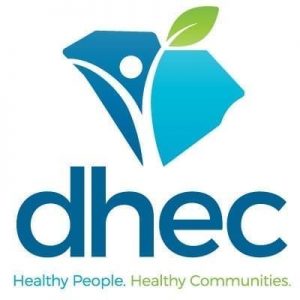DHEC, UofSC, to lead year-long initiative to evaluate COVID-19 infection and immunity over time
October 22, 2020The South Carolina Department of Health and Environmental Control (DHEC) and the University of South Carolina (UofSC) are leading an extensive initiative to fortify the state’s response to COVID-19. This science-guided, year-long project will provide information about disease infection and immunity over time and will help identify health inequities.
Led by Dr. Virginie Daguise, DHEC’s Bureau of Chronic Disease and Injury Prevention Director, and Dr. Melissa Nolan, assistant professor and epidemiologist with the UofSC Arnold School of Public Health, the SC STRONG project (Sampling and Testing Representative Outreach for Novel coronavirus Guidance) is driven by public participation. A total of 32,500 South Carolinians have been randomly selected to take part in the first wave of testing for this significant initiative and will receive a blue envelope in the mail.
Participation entails just two steps: complete a private online survey and take part in one free COVID-19 test – both a nasal swab and blood sample – that will identify both current and past infection.
“Partnering with collaborators from academic institutions, government agencies, family medicine and pediatric clinics, and nonprofit organizations across the state, this widescale public health project will track current infection rates and provide scientific evidence of immunity among various populations,” said Dr. Daguise. “Each participant’s information will remain confidential. This is an exciting, once-in-a-lifetime opportunity for South Carolinians to directly support public health experts’ understanding of this new and deadly disease that continues to impact our state and nation.”
Randomly selected participants include those five years of age and older, who will receive a blue envelope by postal mail. Parents or guardians will be responsible for minors’ participation. The SC STRONG project team will work with local healthcare providers and community partners to collect a nasal swab, or oral swab for children, as well as a blood sample, which is a finger prick for children. The online survey and one-time specimen collection are the extent of each individual’s participation in the project. Results for both tests will be provided to the individual within a few days.
“We’re trying to better understand the patterns of transmission within specific populations and we’re looking for existing immunity within individuals who have already recovered from infection,” said Dr. Nolan. “We’ll be using this information to make projections about the dynamics of both the spread and the immunity within specific populations – by geographical area, for example – so we can help inform public health officials’ and policymakers’ decision about the distribution of resources, such as vaccinations, testing, treatment and more.”
The SC STRONG advisory team’s biostatisticians and epidemiologists will regularly prepare interim reports about the project’s findings. These reports will include geospatial hotspot analysis, community herd immunity rates based on a variety of population characteristics, and infectious disease forecasting models based on the team’s data sampling. These reports will be publicly available on the project website shortly after each testing round at scstrong.sc.edu.
Key partners supporting this project include Clemson University, Health Sciences South Carolina, Medical University of South Carolina, Prisma Health, South Carolina National Guard, South Carolina Office of Rural Health and South Carolina Primary Health Care Association.
For more information, visit scstrong.sc.edu or contact SC STRONG personnel at 803-576-7378 or [email protected].
About DHEC
The South Carolina Department of Health and Environmental Control (DHEC) is charged with promoting and protecting the health of the public and the environment in South Carolina. With more than 3,800 employees working in 100 locations across the state, the agency is comprised of four divisions: Environmental Affairs, Healthcare Quality, Public Health and Operations. The agency’s mission is to improve the quality of life for all South Carolinians by protecting and promoting the health of the public and the environment. A few of DHEC’s services include providing vital health care services, coordinating disease control, monitoring and regulating pollution, ensuring food safety, supporting healthy nutrition, responding to natural disasters, providing research and statistics on the state’s health and environment, and much more.
About University of South Carolina
The University of South Carolina is a globally recognized, high-impact research university committed to a superior student experience and dedicated to innovation in learning, research and community engagement. Founded in 1801, the university offers more than 350 degree programs and is the state’s only top-tier Carnegie Foundation research institution. More than 50,000 students are enrolled at one of 20 locations throughout the state, including the research campus in Columbia. With 56 nationally ranked academic programs including top-ranked programs in international business, the nation’s best honors college and distinguished programs in engineering, law, medicine, public health and the arts, the university is helping to build healthier, more educated communities in South Carolina and around the world.













